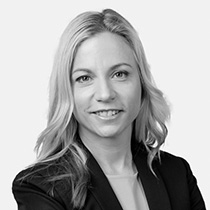PERFORMANCE
The Fund returned 1.9% for the quarter (Q2-24), bringing its 12-month return to 9.7%. The large offshore allocation has benefited the Fund over the long term but detracted in Q2-24 as domestic assets (including the ZAR) rallied on the back of the South African election outcome. The Fund has performed well over meaningful periods.
Fund positioning
Market strength continued into Q2-24, with the MSCI All Country World Index returning 3% for the quarter (USD), bringing year-to-date (YTD) returns to 11%. Global economic growth remained reasonably resilient despite the higher-for-longer rate environment. Returns from the S&P 500 (+4% in USD for the quarter) were extremely narrow as three shares (Nvidia, Microsoft and Apple) accounted for more than 90% of the gain. On an equal-weighted basis, the US equity market was down over the past three months. While we have marginally trimmed global equity exposure to reflect higher market levels, we are still finding many attractive individual investment opportunities given the narrow return environment.
Chinese growth remains below previous levels as high debt levels, a weak property market, and weak business as well as consumer confidence levels weigh on the economy. Notwithstanding the risks of investing in China, we believe a holding in the portfolio is warranted, given the low prices at which many high-quality consumer businesses trade. All of our holdings are delivering strongly, and many are allocating capital in an increasingly shareholder-friendly manner.
Geopolitical tensions persist, with the ongoing conflict in the Middle East and Ukraine-Russia. The uncertainty is compounded by half the world having gone or still going to the polls this year. Democracy prevailed, as peaceful elections passed in emerging markets, including India, Mexico, Indonesia, and South Africa during Q2-24 and France and the UK in early Q3-24. All eyes are on the US election in Q4-24, with the odds of a Republican victory increasing. A Trump presidency could have major ramifications for decarbonisation, the fiscal outlook (more tax cuts) and global geopolitics. Traditional safe havens like gold have remained strong in the face of this uncertainty.
The Bloomberg Barclays Global Aggregate Bond Index (USD) declined -1% for the quarter and is down -3% YTD. Whilst sticky inflation delayed rate cuts in many markets, rates cuts are broadly expected in H2-24 given declining inflation and softer consumer demand. Europe commenced its rate easing cycle in Q2-24, cutting interest rates by 25 basis points (bps). The US and UK are expected to follow. The Fund continues to have no exposure to developed market sovereign bonds, given our view that yields offer insufficient compensation for heavily indebted sovereign balance sheets. However, the Fund has a sizeable holding in offshore credit bonds. These bonds trade on attractive, high single-digit US dollar yields while offering diversified exposure across multiple geographies and sectors. This presents a compelling alternative to the risks inherent in South African (SA) government bonds and the narrower credit spreads in our domestic credit market. Given the compelling opportunities in global equity and fixed income, we continue to make full use of the Fund’s offshore capacity.
It was an eventful second quarter for SA with the election outcome driving a rally in domestic assets. The country’s governing party, the ANC, lost its outright majority but the spirit of democracy prevailed as the ANC oversaw a peaceful transition to a centrist coalition government (whilst retaining the presidency). This coalition government has broad representation from across the political spectrum and some encouraging new appointments. A coalition government brings the prospect of better accountability but also risks policy paralysis as decision-making is more onerous. We think the outcome is marginally positive, albeit the challenges of decades of underinvestment in infrastructure, failing municipal service delivery, poor educational outcomes, a fiscally constrained government, and restrictive policy remain. Whilst there is upside risk from better management, a return of confidence and lower loadshedding, our base case remains a low-growth environment with ongoing infrastructure challenges. At the time of writing, the country has been free of loadshedding for more than 100 days. Given material underinvestment over many decades, we expect intermittent loadshedding to remain a part of life in SA but below the crisis levels of 2023.
The FTSE/JSE All Bond Index returned 7% for the quarter (6% for the YTD) as a market-friendly coalition bolstered investor sentiment. However, unless a step change in SA’s economic growth can be delivered, the longer-term outlook remains challenged with sluggish growth in government revenues and expenditure that is hard to contain given the socioeconomic realities in SA. Given these headwinds, the Fund is underweight government bonds. The currency strengthened 3% against the USD during the quarter and is now broadly flat YTD.
The FTSE/JSE Capped Shareholder Weighted Index returned 8% for the quarter bringing YTD returns to 6% (given the negative first quarter). The Fund’s preferred domestic asset remains SA equities. Holdings include global stocks listed on the JSE, selected resources, and domestic stocks. Domestic stocks continue to offer good opportunities for stock picking as the gap between winning and losing businesses has widened in the tough economic environment. We retain a strong preference for the winners who can flourish even in a low growth environment by gaining market share.
The Financials Index (with its predominantly domestic exposure) drove Q2-24 market returns with a buoyant 18% return. Trading updates from the banks continued to indicate a weak economic environment with elevated credit losses. We were pleased with good earnings delivery from the Fund’s core holdings in winning banks FirstRand and Capitec. Banks are leveraged to economic outcomes, and any uptick in growth would both reduce credit losses from high current levels and support advances growth.
The Industrials Index rose 5% for the quarter (+6% for the YTD). The Fund’s core holdings include many of the global stocks listed in SA (Naspers, Richemont, Aspen, Bidcorp, British American Tobacco, and Anheuser-Busch InBev) for whom the rand strength was a headwind. Whilst larger holdings such as Richemont and Bidcorp detracted during the quarter, we believe both operate in growing markets with strong franchises that will take market share over time. Bidcorp is a food services business offering a one-stop supply solution for restaurants, food and hotel chains across 35 countries on five continents. The business benefits from scale and continues to grow organically by capturing the secular shift to out-of-home consumption as well as by consolidating a fragmented industry. We believe the current valuation does not adequately capture the long-term strong growth that Bidcorp is able to deliver. Key domestic holdings include Dis-Chem, ADvTECH and WeBuyCars (WBC); all of whom are expected to continue gaining market share. During the quarter, WBC was unbundled from Transaction Capital (TCP) and listed directly on the JSE. We believe this is a fantastic business that was being undervalued in the TCP structure. Coronation was able to increase the Fund’s direct exposure by coming in as an early shareholder of reference. WBC is a strong, growing business with a long-term market share opportunity. Customers value its convenient service, fair prices, range of products, and trusted brand. We expect WBC to continue taking market share from independent dealerships.
The resource sector returned 4% for the quarter (+2% for the YTD) boosted by a take-out offer for Anglo American. Miners face increasing difficulty in bringing on new supply in an environment with increased regulatory scrutiny, community engagement requirements and ESG pressures. In addition, ore bodies are more complex, more remote, and deeper. This strengthens the position of owners of existing tier-one assets whilst supporting management decisions to buy assets rather than build. Considering this, BHP Billiton announced a takeover bid for Anglo American, hoping to secure their enviable portfolio of copper assets. The Fund benefited from its overweight holding in Anglo American, which it reduced during the bid process. With the bid gone (for now), the focus has shifted to Anglo American’s own value creation plan: to exit less desirable commodities and refocus its portfolio on copper. This comes with high execution risk. The Fund holds an underweight position in the sector, given reasonably full valuations. The Fund’s underweight position in gold shares contributed this quarter on the back of a more stable gold price and Gold Fields’ production disappointment. It remains a detractor over the year, given the spike in the gold price. We do not believe current gold equity valuations offer sufficient margin of safety to increase our holding.
OUTLOOK
The Fund continues to have a meaningful allocation offshore. While global equities have benefited from rising markets, there remain considerable stock picking opportunities given the narrow market returns. We believe the holding in global credits enhances the risk-adjusted returns of the portfolio. These offshore holdings are supplemented by domestic assets; predominantly SA equities, which is our favoured domestic asset class. A positive election outcome should improve sentiment and may support further appreciation in domestic asset classes. However, given the structural and economic challenges that continue to plague SA, we believe the large offshore allocation remains optimal for delivering long-term risk-adjusted returns.
 South Africa - Personal
South Africa - Personal



